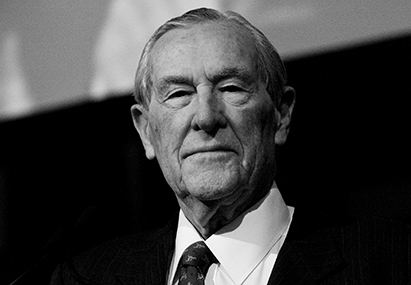15th Annual Hawke Lecture
 |
Advance Australia Where?
|
with Mr Richard Woolcott AC, former Special Envoy and diplomat for Australia
Australia is at an historic turning point.
We now live in a more interconnected post cold war world. The Asia Pacific region is where the world's major power relationships most closely intersect. Australia needs to acknowledge that Australia is permanently located in the South East Asian and South West Pacific region. Our adjustment to this reality will determine the success or otherwise of our future as a Nation.
The unprecedented transfer of wealth from the West to the East, which will continue into the foreseeable future, emphasises the urgency of an Australian response to this seismic shift in influence. This is driven mainly by the rise of China and India as well as the continuing influence of Japan, South Korea and Russia in addition to the growing potential of Indonesia and Vietnam.
To respond effectively Australia needs a fundamental change in our national psyche focused more on Asia than our established traditional links with the United Kingdom, the United States and Europe. The idea that we do not have to choose between our history and our geography is simplistic and a politically expedient cliché. Our history is our past, some of it noble and some of it shameful. But forging our future in the Asian region will rely on a more effective response to our geography.
Richard Woolcott delivered the 2012 Annual Hawke Lecture after his successful efforts in New York to assist Australia's bid for a place on the UN Security Council. (Interview on ABC News)
Published copies of the Annual Hawke Lecture series are available from the Hawke Centre.
Biography
Richard Woolcott AC is the Founding Director of the Asia Society AustralAsia Centre and a member of the Australian American Leadership Dialogue since 1992. He is also a member of the International Council of the New York Based Asia Society.
In June 2008 he was appointed the Prime Minister's Special Envoy to develop an Asia Pacific Community concept.
He was Secretary of the Department of Foreign Affairs and Trade from 1988 to 1992. Prior to that appointment he had served as deputy to the High Commissioner in Malaysia, Commissioner in Singapore, High Commissioner to Ghana, Ambassador to the Philippines, Ambassador to Indonesia and Ambassador and Permanent Representative to the United Nations (1982-1988), where he also represented Australia on the Security Council (1985-1986). He was Chairman of the Australia Indonesia Institute from 1992-1998 and a member of the Advisory Panel for the first Government White Paper on Foreign and Trade Policy, published in 1997. Between 1992 and 2005 he was on the Boards of a number of companies in the private sector.
Mr Woolcott was closely involved with the establishment of the Asia Pacific Regional Economic Cooperation forum (APEC) and in 1989 was appointed as former Prime Minister Hawke's Special Envoy charged with developing the APEC concept. He has also carried out Special Envoy roles for Prime Ministers Holt, Whitlmam, Howard and, most recently, Rudd.
He was made an Officer in the Order of Australia in 1985 and a Companion in the Order in 1993. He was awarded the Bintang Mahaputra Utama by the Government of Indonesia in 2000 for his contribution to bilateral and regional relationships. He was awarded the 2008 Sir Edward "Weary" Dunlop Asia Medal for his contribution to Australia's relationships with Asian countries. In 2008 he was selected as one of the inaugural Fellows of the Australian Institute of International Affairs. In March 2012 he was awarded an honorary Doctor of Law by the University of Melbourne.
Mr Woolcott has contributed articles to leading Australian and overseas newspapers and journals. He is the author of The Hot Seat: Reflections on Diplomacy from Stalin's Death to the Bali Bombings, which was published in 2003 by Harper Collins and Undiplomatic Activities, published by Scribe in 2007.
While the views presented by speakers within the Hawke Centre public program are their own and are not necessarily those of either the University of South Australia or The Hawke Centre, they are presented in the interest of open debate and discussion in the community and reflect our themes of: strengthening our democracy - valuing our diversity - and building our future.
The copying and reproduction of any transcripts within the Hawke Centre public program is strictly forbidden without prior arrangements.




